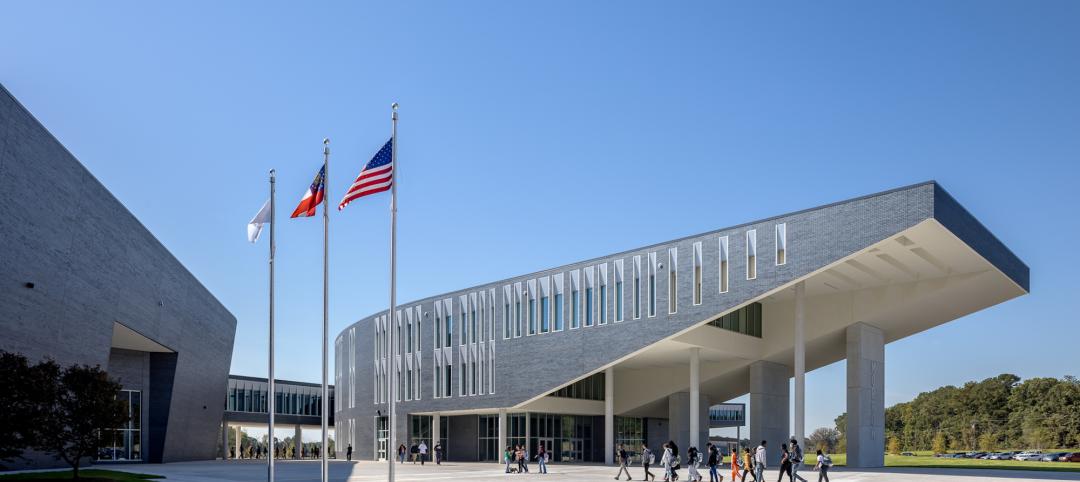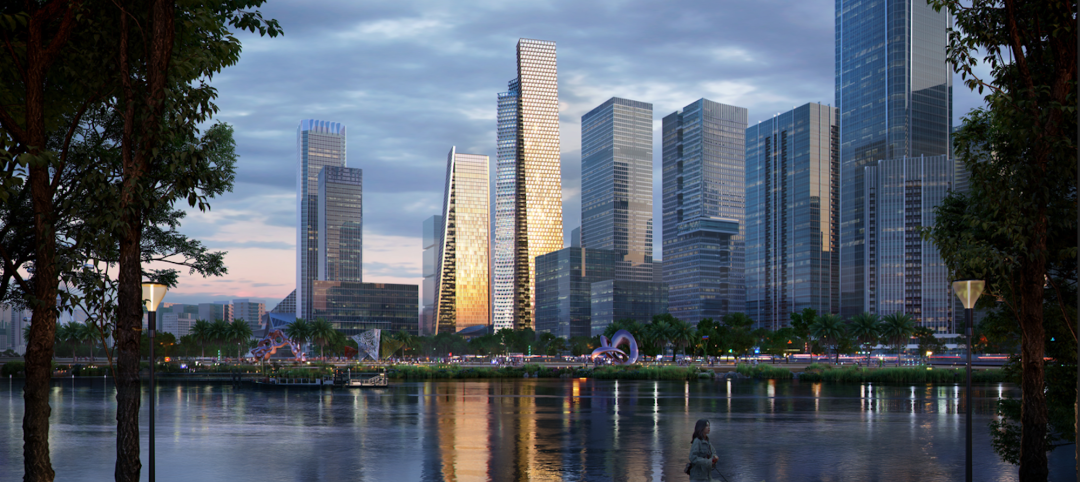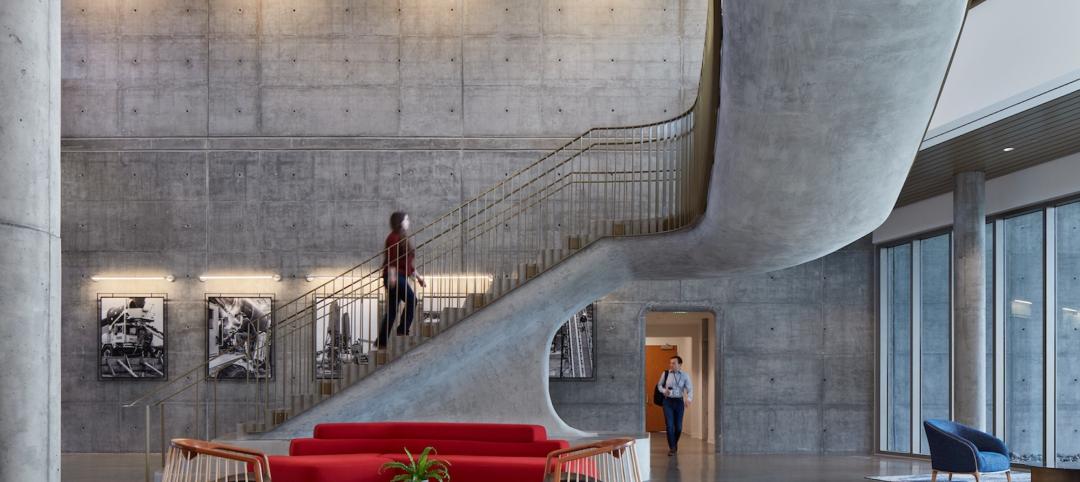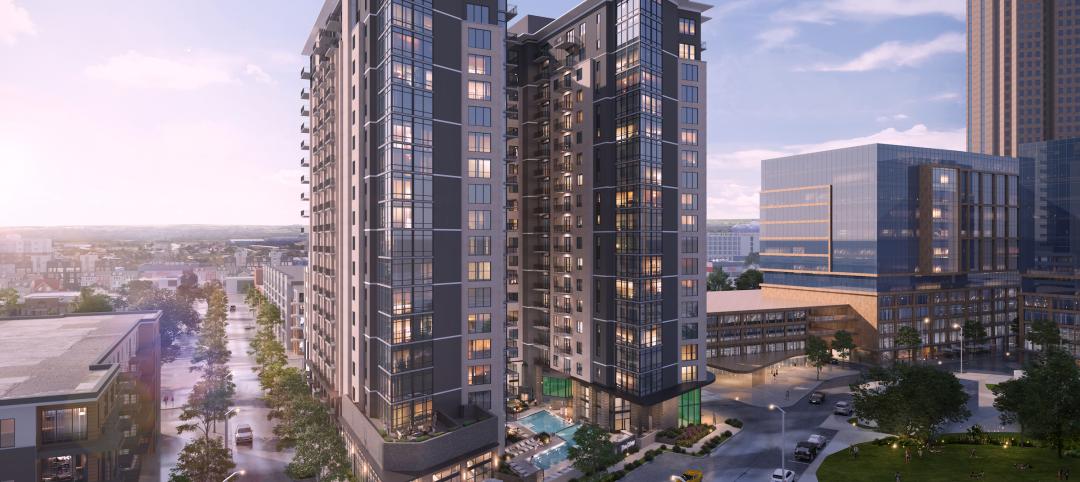BD+C: What is your gut telling you about the real estate market?
Michael J. Alter: My hope is that things are bottoming out, but things aren’t going to be good until unemployment drops, rents start firming up, and there’s some absorption in the markets. Capital markets are beginning to return, for high-quality apartment deals and CBD office buildings in major cities like New York, Chicago, and Washington. Nationwide, the value of trophy properties is only at about 17% below their peak. In Chicago, two major office towers recently sold at record prices, so clearly there’s a hunt for institutional-grade assets with credit tenants.
BD+C: Then why aren’t more projects getting financed?
MJA: There’s a tremendous amount of liquidity on the sidelines. Commercial real estate companies and funds raised $13.2 billion in November alone, while the pension funds and foreign capital have also raised their allocations. For investors, there are not a lot of great places to put your money. It’s a risk/reward calculation, although investors worldwide still look at the U.S. as the highest-quality market to be in.
In talking to our clients, we think there’s a significant pent-up demand, projects that they want to do and haven’t pulled the trigger on, but they’re getting ready. Corporations are sitting on $2 trillion of capital. We’re going to start to see them moving ahead on real estate in 2011—not a dramatic burst of activity, but a steady increase. All that gives me cause for optimism.
BD+C: In accepting the NAIOP award on behalf of your company, you noted that “30 million people will join our population in the next decade alone.” What does that mean for the real estate industry?
MJA: Well, first, a lot of that growth will take place in urban centers. By 2050, there will something like 300 million people in U.S. cities, about 75% of our economic output, so there will be a great need for high-tech office buildings that support knowledge work. Then there’s the aging population—about 40 million senior citizens—which creates opportunities in how we house and care for elderly people. There’s going to be tremendous demand for healthcare, particularly in the outpatient arena, due to this increase and also because of the 30 million new people who will be covered under healthcare reform.
In just the last six months, our healthcare division, Alter+Care, has been reporting that every medical provider is rethinking its business model and strategy. Healthcare reform has urged that hospitals move toward an accountable care model, which means co-locating the entire continuum of medical services, from wellness to outpatient services to acute care. They’re jockeying for position in this new paradigm, and they’re thinking about their space needs as a piece of that puzzle.
Hospitals are also buying physician groups, with a new emphasis on primary care. This physician-employed model gives hospitals more control, which will increase the demand for locating medical office space right on hospital campuses. The resolution of all this is going to have a significant impact on the real estate industry.
BD+C: What do your clients say about sustainability?
MJA: We do hear about it from clients, particularly the Fortune 500 companies. It’s an important criterion for them, and they mention it in all RFPs. It’s taken a bit of back seat because of the economy, and it’s not quite as high a priority as it was two years ago, but that is temporary. The case for green can be made in many ways. Consider that energy prices have quadrupled since the 1990s. As a long-time building owner, we had a vested interest in controlling the operating expenses of those buildings, and one way to accomplish that has always related to energy costs. “Green” is only going to continue, and we’re all getting better at bringing the costs down without paying a premium.
I think the capital markets will also start placing a small premium on green buildings, and that will make the cost situation even more favorable.
BD+C: How can architects, construction firms, and engineers work better with a major developer like the Alter Group?
MJA: We have a very small in-house operation for the number of projects we do, and we use a lot of outside service providers. We’re looking for team players, collaborators, people who can work together in a positive way. Some people want to be in charge and tell everyone what to do, and are incapable of the give and take that leads to a successful project. Once we find the right people who are team players and understand the value proposition, then we keep going back to them.
BD+C: From a professional standpoint, what’s your biggest worry?
MJA: A double-dip recession caused by the government stimulus not being replaced by private-sector demand. In the long term, we have to confront our $14 trillion national debt; not doing so will impair our ability to borrow to fund our growth. We have more than $1 trillion worth of commercial real estate loans expected to mature between 2010 and 2013, and that’s a concern. I think properties with cash flow won’t have a problem refinancing, although there may be additional equity requirements on those loans.
Personally, I don’t think we’ll have a double dip, but that doesn’t mean I don’t worry about it.
Comments? Send them to: rcassidy@sgcmail.com.
Related Stories
K-12 Schools | Feb 18, 2023
Atlanta suburb opens $85 million serpentine-shaped high school designed by Perkins&Will
In Ellenwood, Ga., a southeast suburb of Atlanta, Perkins and Will has partnered with Clayton County Public Schools and MEJA Construction to create a $85 million secondary school. Morrow High School, which opened in fall 2022, serves more than 2,200 students in Clayton County, a community with students from over 30 countries.
Museums | Feb 17, 2023
First Americans Museum uses design metaphors of natural elements to honor native worldview
First Americans Museum (FAM) in Oklahoma City honors the 39 tribes in Oklahoma today, reflecting their history through design metaphors of nature’s elements of earth, wind, water, and fire. The design concept includes multiple circles suggested by arcs, reflecting the native tradition of a circular worldview that encompasses the cycle of life, the seasons, and the rotation of the earth.
Architects | Feb 17, 2023
Architect of the Capitol fired by President Biden after strong bipartisan criticism
Architect of the Capitol J. Brett Blanton was let go this week following alleged abuse of authority, misuse of government property, and wasted taxpayer money.
High-rise Construction | Feb 15, 2023
Bjarke Ingels' 'leaning towers' concept wins Qianhai Prisma Towers design competition
A pair of sloped high-rises—a 300-meter residential tower and a 250-meter office tower—highlight the Qianhai Prisma Towers development in Qianhai, Shenzhen, China. BIG recently won the design competition for the project.
Senior Living Design | Feb 15, 2023
Passive House affordable senior housing project opens in Boston
Work on Phase Three C of The Anne M. Lynch Homes at Old Colony, a 55-apartment midrise building in Boston that stands out for its use of Passive House design principles, was recently completed. Designed by The Architectural Team (TAT), the four-story structure was informed throughout by Passive House principles and standards.
Designers | Feb 13, 2023
Hoffmann Architects + Engineers Establishes Diversity Advancement Scholarship Fund
Hoffmann Architects + Engineers, a design firm specializing in the rehabilitation of building exteriors, contributed $25,000 to fund the Hoffmann Diversity Advancement Scholarship, administered through the Connecticut Architecture Foundation. The fund provides scholarships for students from underrepresented racial or ethnic groups who are seeking degrees in architecture or engineering.
Office Buildings | Feb 12, 2023
Smyrna Ready Mix’s new office HQ mimics the patterns in the company’s onsite stone quarry
Designed by EOA Architects to showcase various concrete processes and applications, Smyrna Ready Mix's new office headquarters features vertical layering that mimics the patterns in the company’s stone quarry, located on the opposite end of the campus site. The building’s glass and concrete bands are meant to mirror the quarry’s natural contours and striations.
Multifamily Housing | Feb 11, 2023
8 Gold and Platinum multifamily projects from the NAHB's BALA Awards
This year's top BALA multifamily winners showcase leading design trends, judged by eight industry professionals from across the country.
Multifamily Housing | Feb 10, 2023
Dallas to get a 19-story, 351-unit residential high-rise
In Dallas, work has begun on a new multifamily high-rise called The Oliver. The 19-story, 351-unit apartment building will be located within The Central, a 27-acre mixed-use development near the Knox/Henderson neighborhood north of downtown Dallas.
Sustainability | Feb 9, 2023
New guide for planning, designing, and operating onsite water reuse systems
The Pacific Institute, a global nonpartisan water think tank, has released guidance for developers to plan, design, and operate onsite water reuse systems. The Guide for Developing Onsite Water Systems to Support Regional Water Resilience advances circular, localized approaches to managing water that reduce a site’s water footprint, improve its resilience to water shortage or other disruptions, and provide benefits for local communities and regional water systems.

















